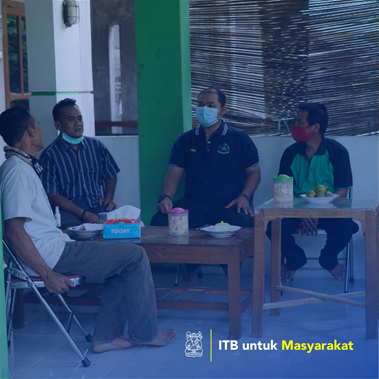

Pathmi Noerhatini
Supply chain is a system that involves the production, delivery, storage, distribution and sale of products in order to meet the demand for such products to the hands of users or consumers (Ashari, 2007). In contrast to the supply chain of products produced by the industry, then the supply chain of vegetables, especially tomato to supermarkets is largely determined by the supplier, who are primarily farmers and farmer groups are small capital, access to the institution of capital is low, the quality and quantity inconsistent, and the application of advanced agriculture technology is low. Based on case studies in the vegetable supply chain Pangalengan (West Java), no socialization of supermarket on the specification and quality of vegetables to farmers and farmer groups, so that quality of vegetables was low (Setiawan et al., 2011). Socialization of supermarkets for farmers and farmer groups sometimes can not be done effectively. This causes farmers or groups of farmers only produce vegetables as they know just as usual, which can not reach the specified quality supermarket. Therefore, we propose a program to LPPM to improve farmers' groups around ITB Jatinangor Campus in the tomato supply chain to supermarket. Farmer groups involved were the two groups of farmers from two villages (Genteng and Nanggerang) in the Sukasari district, Sumedang regency. The main activity was the training and implementation of the SOP-GAP for tomato cultivation, harvest and postharvest. SOP-GAP’s implementation, especially for the tomatoes supply chain to supermarket. LPPM program can impromed ability of farmers' groups around campus ITB Jatinangor, particularly in the tomatoes supply chain to supermarket with the achievements as follows: 1. Partnership between farmers and the private sector 2. There was an agreemen/contract will be made between farmers and the private sector. 3. Development of farmer organizations 4. Increasing in the capacity building of farmers and farmers' groups (managerial skills, technology, information, market, associations or organizations. 5. Establishment of cooperation with the Department of Agriculture in Sumedang District to register the land in order to bias submitted for certification (Prima 3). 6. There is a positive impact on the supply chain (there is clarity of roles; no efficiency function; there is the added value of innovation, etc.) 7. There are aspects of environmental protection (eg organic farming methods, problem of erosion, etc.) 8. SOP / GAP also requires land conservation (among them creating terracing and planting perennials) 9. Changes in farming practices (system of sorting fruit harvesting, farming techniques, production, etc.).
Pelaksanaan Kegiatan Kepedulian Sosial berupa pendidikan/penyuluhan/pendampingan
Based on case studies in the vegetable supply chain Pangalengan (West Java), no socialization of supermarket on the specification and quality of vegetables to farmers and farmer groups, so that quality of vegetables was low.